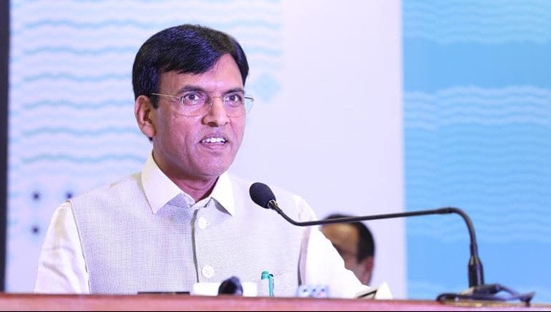
New Delhi: To ensure equitable access to healthcare across the country, Union Minister Mansukh Mandaviya emphasised that healthcare should be viewed as a service, not a business.
“For the world, health may be commerce, but for India, it is service. To make health accessible, we must make it affordable — and that begins by treating it as a service, not a business. When service, not profit, drives healthcare, it reaches the last mile,” said Mandaviya the Union Minister of Youth Affairs and Sports and former Union Minister of Health, speaking at the World Health Summit Regional Meeting in New Delhi.
The World Health Summit (WHS) Regional Meeting 2025 was conducted on the theme “Scaling Access to Ensure Health Equity.” The event was hosted by the National Institute of Medical Sciences (NIMS) as a member of the WHS Academic Alliance, in collaboration with Ashoka University and the Manipal Academy of Higher Education.
Inaugurating the summit, Anurag Thakur, Member of Parliament (Lok Sabha), said, “In a world where quality healthcare often remains a privilege, India, with over 1.43 billion people, has made bold strides to democratize healthcare — moving from selective interventions to a citizen-centric model rooted in financial protection and primary care. As we aim to become a developed nation by 2047, healthcare will remain central to our journey.”
“India will grow from a $4 trillion to a $30 trillion economy by 2047, driven by human development and better quality of life — with health at its core. This is not just India’s digital decade; it’s India’s health decade,” added Amitabh Kant, India’s G20 Sherpa and former CEO of NITI Aayog.
Meanwhile, participating in a panel discussion on the accreditation of digital health services, Dr. Anurag Agrawal, Dean of BioSciences at Ashoka University, underlined that digital health and next-generation technologies like AI are playing a pivotal role in enhancing last-mile delivery of health services. “However, significant gaps still persist in India and across South Asia. We need to address these gaps, foster collaboration, and identify scalable solutions to improve health outcomes for all,” he added.

